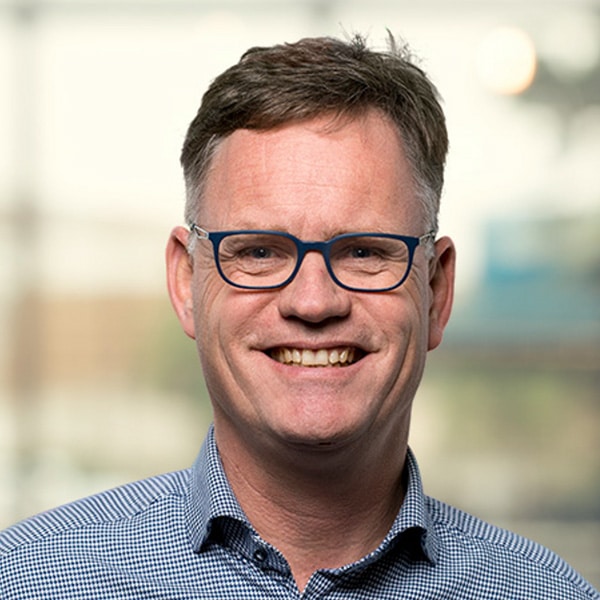The last year the European petrochemical industry has entered into a downward spiral with almost weekly announcements of closures of production facilities. For me as a chemist working in the industry for more than 25 years, it is really fascinating to observe an industrial transformation in real time!
The war in Ukrain and more recently the global trade tariffs have accelerated what already had been developing over more than a decade, namely a increasing dependence of energy and feedstocks from outside of Europe. Luckily before these recent events the European Commission already kicked off the Green Deal with the ambition to become the first “Climate-Neutral Bloc” in the world. This was a strategic move, not only from the perspective of climate change mitigation, but also from the perspective of energy and feedstock dependence and the creation of a future proof industry and jobs.
With the oil states integrating forward into base chemicals and imported LNG tripling the natural gas price in Europe, the traditionally fossil carbon based chemical industry in Europe will have to transform itself to remain competitive in a global market. This transformation has to address simultaneously the energy transition and the feedstock transition. The energy transition is very much focused on electrification to phase out fossil fuels, while the feedstock transition boils down to replacing fossil carbon feedstocks by circular carbon feedstocks.
As shown by a.o. a global scenario study [1] , the only viable way to a net zero emission and circular chemical industry is to replace a substantial part of fossil carbon feedstocks such as oil and natural gas by circular carbon based feedstocks such as biofeedstocks, plastic waste and eventually carbon dioxide. But how to implement this in practice before 2050 for a complex and capital intensive chemical industry?
To avoid a complete redesign of production processes and value chains, it would make sense to find a fossilfree replacement of oil and gas. This is exactly what Nobel Prize laureat George Olah proposed by his “Methanol Economy” [2]. When methanol is produced from biofeedstocks (biogas, woody biomass and biogenic CO2) it is an almost zero emission and circular commodity to produce biobased plastics, chemicals and fuels. It is easy to store and transport using an existing infrastructure. Last, but not least methanol is a relatively safe and fully biodegradable substance.
So, what is holding us back from creating a future proof methanol based chemical industry? Main issue is the current price of biomethanol compared to fossil based methanol. This price is expected to drop substantially by scaling-up biomethanol production processes and related learning curves. With a growing global project pipeline of more than 40Mton production capacity by 2030 [3] and promising innovations in biomass pretreatment, biochar co-production and gasification technology the prospects are good for biomethanol to become cost competitive. The business case for biomethanol will be further supported with increasing CO2 emission costs (ETS price) and/or carbon capture and storage (CCS) costs for fossil methanol.
References:
[1] https://icca-chem.org/wp-content/uploads/2024/11/Climate-Neutrality.pdf
[2] https://www.methanol.org/wp-content/uploads/2016/06/Olah-Essay-Beyond-Oil-Gas-Methanol.pdf
[3] https://www.genasolutions.com/analysis_and_insights/40

About the author
Reinier Grimbergen
co-Founder of Blue Circle Olefins

Reinier Grimbergen is an organic chemist by training and obtained his PhD in solid state chemistry at the Radboud University in Nijmegen. After his studies he joined Royal DSM, a Life Science and Material Science company and made his career in R&D and Innovation management with a focus on sustainable value creation. He held executive positions as VP R&D for the Resins Group and Director Science to Innovate reshaping the corporate research program of DSM. After having joined the Bolsius Group Reinier has moved to TNO where he has been appointed as a Principal Consultant. His strategic focus was the systemic Industrial Transformation and amongst others he supported the business-driven shared innovation programs VoltaChem and Brightsite. Next to his role at TNO he has been Chairman of SusChem National Technology Platform and member of the Board of the SusChem European Technology Platform in Brussels. Currently, he runs his own science-based strategic consultancy firm and is a co-founder of Blue Circle Olefins, a start-up focusing on the production and commercialization of circular olefins in Europe.
During his career Reinier has gained extensive expertise on innovation, industrial process technologies, electrification, hydrogen, carbon management (Carbon Capture and Storage, Carbon Capture and Utilization and Recycling), critical raw materials, sustainability impact assessments and EU regulations contributing to a Net Zero and Circular Industry by 2050. Last, but not least he shares his insights on LinkedIn, moderates, writes columns and is a keynote speaker at conferences.









